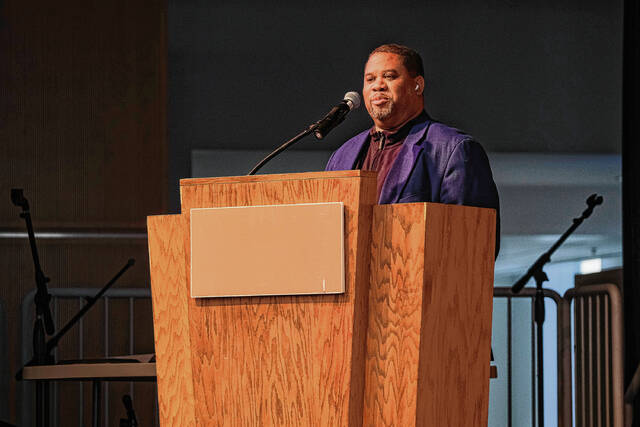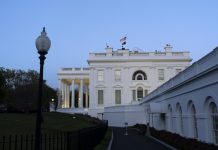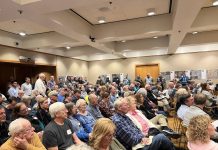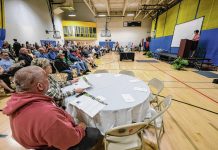
Mike Wolanin | The Republic Columbus/Bartholomew County Area NAACP Chapter President Johnnie Edwards addresses guests to the annual NAACP, African American Fund and IUPUC Martin Luther King Jr. Day program at The Commons in Columbus, Ind., Monday, Feb. 28, 2022. The program was delayed to the end of February due to the ongoing COVID-19 pandemic.
COLUMBUS, Ind. — The Columbus/Bartholomew County Area Chapter of the NAACP has organized a panel discussion with representatives from local law enforcement, including the prosecutor’s office and a judge, from 5:30 to 7:30 p.m. Tuesday at The Commons, 300 Washington St. in downtown Columbus.
Chapter President Bishop Johnnie Edwards mentioned that the event originally was planned pre-COVID, but had to be canceled.
He added that the meeting is not connected to any specific case or problem, but rather, a broad look at policies and procedures such as sentencing of convicted offenders and other elements “that the community normally may not necessarily be fully aware of, in order that we all can avoid some form of confusion.”
He mentioned a situation in the past in which a person was charged after carrying a weapon to Central Middle School, and eventually was charged with a misdemeanor and received probation.
“People have asked us, ‘How come that was not a felony?’” Edwards said.
He said he figured a crowd of maybe 50 to 75 people would seem healthy for such a discussion.
Panelists will include representatives from the Columbus Police Department, The Bartholomew County Sheriff’s Department, Indiana State Police, the Bartholomew County Prosecutor’s Office and the Bartholomew County Probation Department and at least one local judge. Edwards will serve as a moderator.
He emphasized that the gathering is to get an overall look at law enforcement and not about having local residents grill any one official about one specific case or another.
“We’ll ask them to to deal with general information about how legal and law enforcement processes work so that the community can be even more informed,” Edwards said. “The community may not always be clear on understanding guidelines.
“This way, both sides can be better informed.”
For more on this story, see Tuesday’s Republic.




